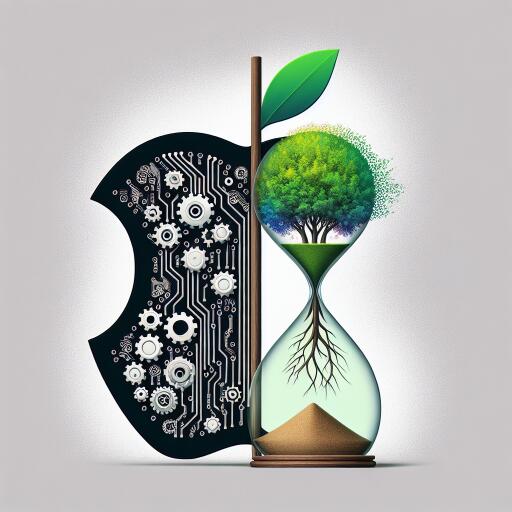Apple Embarks on a Bold AI Journey
In a landmark announcement at its Worldwide Developer Conference, Apple has set the stage for a monumental shift in its approach to artificial intelligence (AI). The launch of Apple Intelligence marks a new era for the tech giant, aiming to infuse its entire product range with AI capabilities designed to offer a more personalized user experience. Apple’s initiative is not just about smart features; it’s a promise to uphold the highest standards of privacy while harnessing the power of AI.
At the heart of Apple’s ambitious plan is a secure, private cloud infrastructure that seeks to redefine data privacy in the AI landscape. Apple Intelligence stands to differentiate itself by offering AI services that leverage user data without the need to constantly ship this data to the cloud, contrasting sharply with strategies employed by tech giants like Alphabet, Amazon, and Meta. Apple’s approach aims to address the growing concerns over user privacy in an increasingly data-driven world.
But the real question is, how does Apple plan to execute this vision? The company has hinted at a sophisticated architecture that processes sensitive data locally on devices or in a way that the data remains encrypted and opaque to Apple itself, even when it’s utilized for cloud-based AI computations. This means users could benefit from powerful AI features without compromising on the privacy they cherish.
The Rise of Carbon Storage: A New Hope or a False Promise?
As the world grapples with the pressing need to combat climate change, carbon storage is emerging as a pivotal technology in the global quest to reduce atmospheric carbon dioxide levels. California, the United States, and other nations are witnessing a surge in carbon capture and storage (CCS) projects, fueled by a mix of government subsidies, ambitious climate targets, and the decline of traditional fossil fuel industries. This burgeoning sector is seen by many as the dawn of a “reverse oil boom,” where the focus shifts from extracting fossil fuels to burying carbon emissions deep beneath the Earth’s surface.
The optimism around carbon storage is palpable, driven by the prospect of radically reducing greenhouse gas emissions. Proponents argue that this technology could play a crucial role in achieving net-zero emissions, envisaging a future where humanity not only halts its contribution to atmospheric carbon but actively removes existing carbon as well. This vision of carbon storage portrays it as an essential pillar in the transition to a sustainable, fossil-free energy system.
However, this enthusiasm is not without its detractors. Critics of carbon storage caution that this technology could inadvertently extend the lifespan of fossil fuel power plants, perpetuating the environmental and health hazards associated with their operation. There are fears that CCS initiatives could lead to a scenario where the focus on reducing carbon emissions is diluted, allowing polluting industries to maintain the status quo under the guise of progress. Moreover, concerns have been raised about the potential for these projects to inflict harm on disadvantaged communities, who might bear the brunt of the environmental and health risks associated with carbon storage facilities.
At the confluence of innovation and controversy, the debate over carbon storage encapsulates the broader challenges facing our transition to a sustainable future. Whether seen as a beacon of hope or a misguided venture, the trajectory of carbon storage technology will undoubtedly play a significant role in shaping our global response to climate change.
In both the realms of technology and environmental management, the paths forward are complex and fraught with challenges. Apple’s push into personalized AI, grounded in a commitment to privacy, and the expanding frontier of carbon storage efforts represent the multifaceted approach society is taking towards shaping a more sustainable and technologically advanced future. Whether these initiatives will deliver on their promises, however, remains to be seen.










